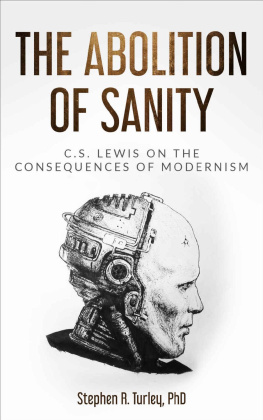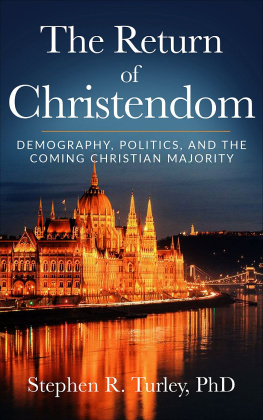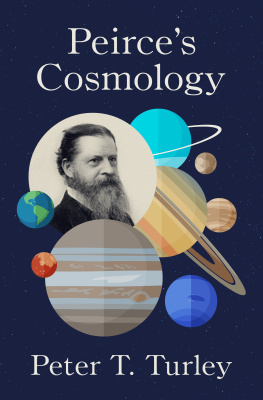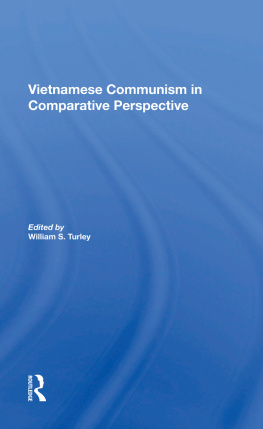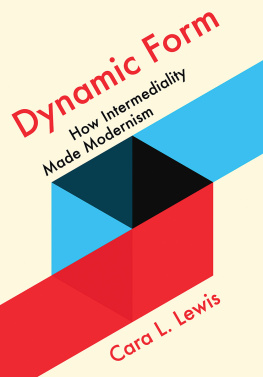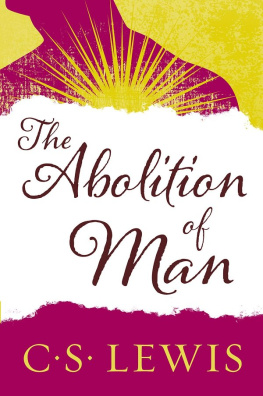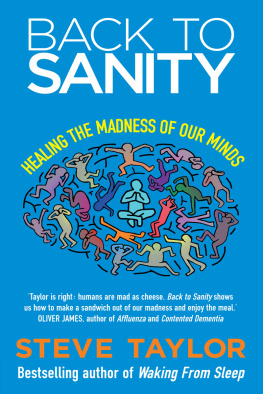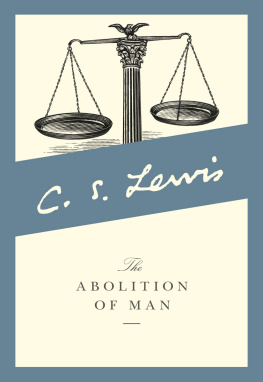Dr. Steve Turley - The Abolition of Sanity: C.S. Lewis on the Consequences of Modernism
Here you can read online Dr. Steve Turley - The Abolition of Sanity: C.S. Lewis on the Consequences of Modernism full text of the book (entire story) in english for free. Download pdf and epub, get meaning, cover and reviews about this ebook. year: 2019, publisher: Turley Talks Publishing, genre: Religion. Description of the work, (preface) as well as reviews are available. Best literature library LitArk.com created for fans of good reading and offers a wide selection of genres:
Romance novel
Science fiction
Adventure
Detective
Science
History
Home and family
Prose
Art
Politics
Computer
Non-fiction
Religion
Business
Children
Humor
Choose a favorite category and find really read worthwhile books. Enjoy immersion in the world of imagination, feel the emotions of the characters or learn something new for yourself, make an fascinating discovery.
- Book:The Abolition of Sanity: C.S. Lewis on the Consequences of Modernism
- Author:
- Publisher:Turley Talks Publishing
- Genre:
- Year:2019
- Rating:4 / 5
- Favourites:Add to favourites
- Your mark:
- 80
- 1
- 2
- 3
- 4
- 5
The Abolition of Sanity: C.S. Lewis on the Consequences of Modernism: summary, description and annotation
We offer to read an annotation, description, summary or preface (depends on what the author of the book "The Abolition of Sanity: C.S. Lewis on the Consequences of Modernism" wrote himself). If you haven't found the necessary information about the book — write in the comments, we will try to find it.
The Abolition of Sanity: C.S. Lewis on the Consequences of Modernism — read online for free the complete book (whole text) full work
Below is the text of the book, divided by pages. System saving the place of the last page read, allows you to conveniently read the book "The Abolition of Sanity: C.S. Lewis on the Consequences of Modernism" online for free, without having to search again every time where you left off. Put a bookmark, and you can go to the page where you finished reading at any time.
Font size:
Interval:
Bookmark:
The Abolition
of Sanity
C.S. Lewis on the
Consequences of Modernism
Stephen R. Turley, Ph.D.

A New Conservative Age is Rising
www.TurleyTalks.com
Copyright 2019 by Dr. Steve Turley. All Rights Reserved.
ISBN - 9781091268883
No part of this publication may be reproduced, stored in a retrieval system, or transmitted in any form or by any means, electronic, mechanical, photocopying, recording, scanning, or otherwise, except as permitted under Section 107 or 108 of the 1967 United States Copyright Act, without either the prior written permission of the author, or authorization through payment of the appropriate per-copy fee to the Copyright Clearance Center, Inc., 222 Rosewood Drive, Danvers, MA 01023, (978) 750-8400, or on the web at www.copyright.com. Requests to the author for permission should be addressed to steve@turleytalks.com.
Table of Contents
Introduction
Who Was C.S. Lewis?
The World Around
The Abolition of Man : What Others Have Said
The Abolition of Man: Summary
The Abolition of Man: Analysis
Famous Quotes
BONUS FEATURE: Questions for Group Discussion
Further Considerations
About www.TurleyTalks.com
About the Author

I n this masterful work, The Abolition of Man, C.S. Lewis observes how modern education is, in fact, changing our conception of what it means to be human. By sequestering the student from the objective values that formed the basis for virtue formation, modern educational practices perpetuate a mechanistic vision of the world comprised of scientifically inspired control over nature and, as a necessary consequence, humans. The Abolition of Man is C.S. Lewis invitation to rediscover the doctrine of objective values and, in so doing, rediscover what it means to be truly human.

C live Staples Lewis, or Jack as he preferred, was born on November 29, 1898, in Belfast, Northern Island, to Albert J. Lewis and Florence Augusta Hamilton. He had one older brother, Warren, who was born a couple of years prior. Shortly after his mother succumbed to cancer in 1908, Lewis was enrolled at the Wynyard School in Watford, Hertfordshire, and two years later, attended a boarding school at Campbell College, Belfast. Because of a respiratory illness, he enrolled at a prep school close to Malvern College, where he would later attend in September of 1913. He was accepted to Oxford University in 1916, but soon after, volunteered for active duty in the British Army during World War I.
He returned to Oxford and in 1925 graduated with a focus on Greek and Latin Literature and philosophy. He accepted a teaching post in English at Magdalen College, Oxford, where he remained for 29 years until he became professor of medieval and renaissance literature at Cambridge in 1954. It was during this time that Lewis rediscovered the Christian faith, largely through the influence of his colleague, J.R.R. Tolkien. And it was also during this period that he published many of his greatest works, such as The Pilgrims Regress (1933), The Great Divorce (1945), and The Lion, the Witch and the Wardrobe (1950).
In 1956, he married the American writer Helen Joy Davidman, who soon became ill and died of cancer in July of 1960. Lewis died shortly thereafter on November 22, 1963 and was buried at Holy Trinity Church in Oxford. He is remembered as one of the most beloved writers and Christian apologists of all time.

I n 1928, just a few years after the end of World War I, a lecture series was founded in England that would prove to be the occasion for perhaps the most important series of lectures delivered in the 20 th century. The Riddell Memorial Lectures were established in memory of Sir John Buchanan Riddell, a devout Christian, with the intention of exploring the interface between religion and contemporary thought. While a number of lectures have since been delivered, it was the Fifteenth Series of these lectures that would stamp the series indelibly on the map of intellectual history.
It was February 24 th , 1943. Great Britain was in its fourth year of battle in World War II, a conflict that involved, according to then Prime Minister Winston Churchill, nothing less than the survival of Christian civilization. C.S. Lewis and his brother Warren traveled from Oxford to the small medieval town of Durham. Warren wrote in his diary that their visit to Durham was like a little oasis in the dreariness of their lives, an escape from the daily food rationing of urban British life in the midst of the war. This dreary, beleaguered background served an almost clich setting for the content of Lewis lectures over the next three evenings during the universitys Epiphany term, where Lewis contrasted two antithetical futures: one in which the doctrine of objective values was embraced which assured human flourishing; the other in which such a doctrine is jettisoned in favor of scientific utilitarianism, with the consequence of humanity as we have known it abolished.
What Others Have Said

I ronically, in 1955, nearly a decade after it was published, Lewis wrote that The Abolition of Man is almost my favourite among my books, but in general, has been almost totally ignored by the public.
Well, as it turns out, the work was not forgotten after all. Lewis own literary executor Walter Hooper claimed that the work is an all but indispensable introduction to the entire corpus of Lewisiana. Kreeft observes:
[The Abolition of Man] is prophetic; it is couched in scholarly language; in fact, its plethora of learned Latinate references scare away even college students today, for this is the first generation in American history that is less well educated than its parents, but its content is a terrifying prophecy of mortality, not just the mortality of modern western civilization .. but the mortality of human nature itself if we do not recapture belief in [what Lewis calls] the Tao , the natural law, the doctrine of objective values.
Summary

P ublished in 1944, Lewis overall concern in The Abolition of Man is the state of British education in the mid-1940s. His concerns were expressed originally in three lectures over the course of three February evenings in the Physics Lecture Theatre of King's College, Newcastle, which comprise the three chapters of the book. The first chapter, entitled Men Without Chests, draws from the classical imagery of the human person as made up of intellectual capacities, represented by the head; moral capacities, represented by the chest; and emotional and aesthetic capacities, represented by the stomach. In the classical imagination, what made us uniquely human was not the intellect since the heavenly beings had such, nor was it our appetites, which we share with the lower beasts of the earth; instead, what made us truly human was the chest, what we might call a tertium quid, a third thing that binds together or mediates between two otherwise unlike things. The head and the stomach, heaven and earth, come together in the chest, those moral sentiments which most characterize what it means to be human.
Font size:
Interval:
Bookmark:
Similar books «The Abolition of Sanity: C.S. Lewis on the Consequences of Modernism»
Look at similar books to The Abolition of Sanity: C.S. Lewis on the Consequences of Modernism. We have selected literature similar in name and meaning in the hope of providing readers with more options to find new, interesting, not yet read works.
Discussion, reviews of the book The Abolition of Sanity: C.S. Lewis on the Consequences of Modernism and just readers' own opinions. Leave your comments, write what you think about the work, its meaning or the main characters. Specify what exactly you liked and what you didn't like, and why you think so.

